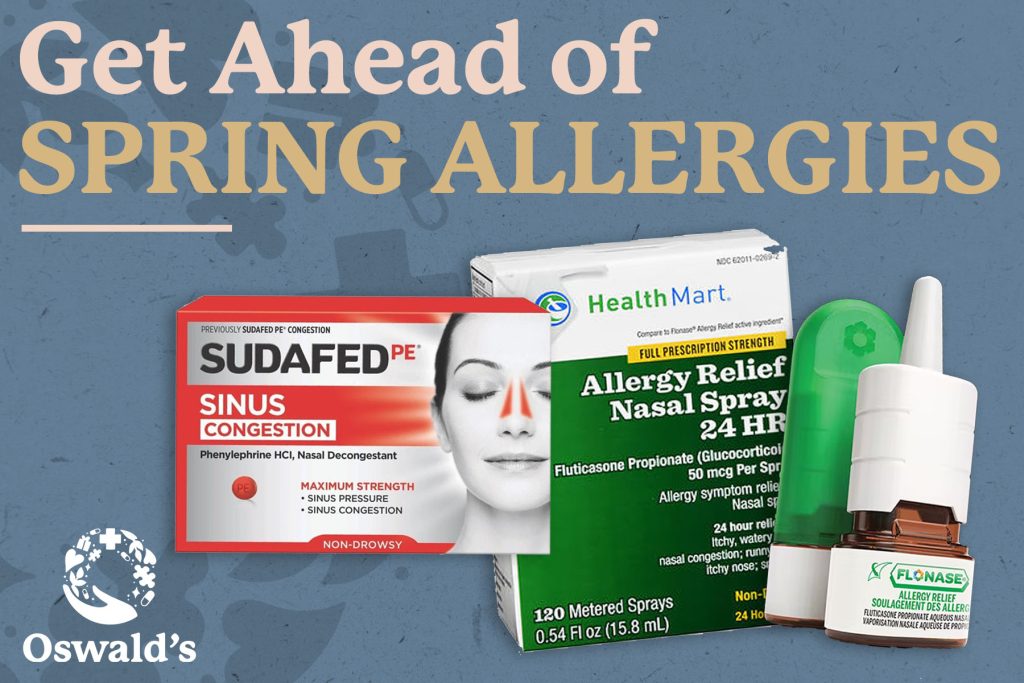Hay Fever, more formally known as Allergic Rhinitis and popularized as “allergies,” affects more than 35 million people in the United States and becomes most prevalent during the springtime. Hay fever can be self-managed with the proper use of over-the-counter medications. Seasonal allergies can present themselves with any of the following symptoms:
- NOSE: sneezing, congestions, itching, post-nasal drip, sinus pressure
- THROAT: pain, hoarseness, itching
- EARS: pressure, congestion
- EYES: itching, redness, swelling, “allergic shiners”
So, how can you help manage your allergies?
Oral Antihistamines
Oral Antihistamines are recommended for those who have mild cases, meaning that their allergy symptoms do not majorly interfere with day-to-day life. Antihistamines may help relieve itching, sneezing, and runny noses. Over-the-counter oral antihistamines include:
- Loratadine (Claritin®)
- Cetirizine (Zyrtec®)
- Levocetirizine (Xyzal®)
- Fexofenadine (Allegra®)
- Diphenhydramine (Benadryl®)
Although generally well-tolerated, some side effects of antihistamines include drowsiness, dry mouth, fatigue, headache, and decreased mental alertness.
Oral Decongestants
Oral decongestants are used for temporary relief of nasal congestion, which is why you may see them combined with oral antihistamines. Over-the-counter oral decongestants include:
- Phenylephrine (Sudafed PE®)
- Pseudoephedrine (Sudafed®) – found behind the counter in the pharmacy
CAUTION! Oral decongestants are not recommended for patients with high blood pressure or heart diseases as they can increase blood pressure and heart rate.
Nasal Steroids
Nasal Steroids are recommended for moderate-to-severe cases in which symptoms affect your day-to-day life. Nasal steroid sprays are shown to have the best effectivity when it comes to controlling allergy symptoms. Over-the-counter nasal steroids include:
- Triamcinolone (Nasacort®)
- Fluticasone Propionate (Flonase®)
- Fluticasone Furoate (Flonase Sensimist®)
Nasal steroid sprays are most effective when used consistently, as they take a couple of days to start working. Make sure to shake any nasal steroid before use, prime the device, tilt your head slightly forward, and use the spray while gently sniffing. Contrary to popular belief, there is no clinical benefit in taking an oral antihistamine and a nasal steroid spray simultaneously.
If you are still unsure about how to manage your allergies, the Ozzie Pharmacy Staff will be more than happy to help out with a recommendation!

